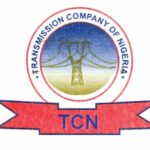The Transmission Company of Nigeria (TCN) has stated that the restoration of the Apir-Ugaji line has taken long to complete due to insecurity in the area.
Speaking during a press briefing on Tuesday, the Managing Director of TCN, Engr. Abdulaziz Sule, said the engineers working on the line repair work under the surveillance of security personnel and leave the site by 6pm.
He, however, said the line, which was an alternative route to supply power to Kano, Kaduna and other major cities in the north, will be completed in two to three days.
“When the Shororo-Mando line is out, the other gateway used to feed the northern part of the country is using Ugwaji-Apir line. But unfortunately, that line was also vandalized. We have line one and line two. There is a video we posted on social media and you will see how those cables were cut.”
- NPFL fines Kano Pillars N2m, suspends player for unruly conduct
- ‘My action unacceptable, I’m seeking counselling,’ says Rep who assaulted Bolt driver
“For line two, almost five span of the line was vandalized. As I am talking to you now, our engineers have been working to make sure that they restore that line. But even in that area, we have to get a military escort before our people can work. Anytime it is getting to 6 p.m., they have to leave the place and go back to a safe place, sleep there and come back in the morning.
“As I am talking to you now, line one, which can carry 400 megawatts, is going to be ready between today and tomorrow. The second line, which five span was vandalized, is going to be ready latest by Sunday, that is in five days’ time.”
“The Honorable Minister also has explained this in the State House yesterday. So once we complete these two lines, we will be able to send at least 500 to 600 megawatts to the northern region. This is where we are now.”
On what the company is doing to stop the vandalism on transmission line, he said, we have been cooperating with owners of the land, that’s with the local people. We have also been cooperating with the security agencies,with civil defense, with the Nigerian police and with the army to make sure that they patrol our transmission line. We also used to engage locals, even provide them with transportation and phone so that if they see anything happen in our transmission line, they will quickly call us. So we are working on that.”

 Join Daily Trust WhatsApp Community For Quick Access To News and Happenings Around You.
Join Daily Trust WhatsApp Community For Quick Access To News and Happenings Around You.


